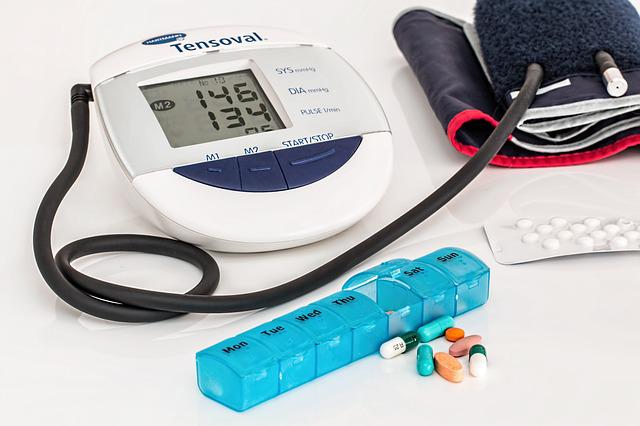First, what is healthcare consumerism??
Healthcare consumerism is a movement where individuals take more control of their own health benefits and healthcare decisions. People can be more aware of their benefits and associated costs thanks to the growing patient empowerment.
Please read on for more information about what healthcare consumerism is in detail.
Healthcare Consumerism Is A Good Thing
Because of healthcare consumerism, the entire healthcare system is being pushed to provide better information and transparency so that everyone can make informed decisions about their health and health benefits.
Introducing hospital reviews, telehealth, and an expanding online database of health information from hospitals and healthcare organizations are a few examples of these changes. Even new legislation in Congress has been passed as a result of the need for greater transparency: the No Surprises Act.
The No Surprises Act, which went into effect on January 1, 2022, helps shield Americans from unexpected medical bills from hospitals or other providers that are not in their network.
Healthcare consumerism is the cause of all of these modifications, but why is it becoming more prevalent in the first place?
The Impact Of Healthcare Consumerism
Consumers today want to be in charge of their own health care. However, the majority believe they lack the knowledge and resources necessary. Customers can easily access comparisons of features, advantages, and costs in other industries to help them make purchasing decisions. The healthcare sector, in contrast, offers a vast array of perplexing options, contact points, and service flows without providing any upfront pricing information.
Consumers believe that choosing their healthcare is one of their most significant and expensive decisions (75%). However, the selection and payment process for medical services can be so overwhelming that patients frequently elect to forgo treatment in order to avoid the uncertainty and expense.
The demand for better information and greater transparency from healthcare providers is rising as consumers seek to make better decisions. They also want a more collaborative relationship rather than a one-way exchange of information between the patient and the doctor.
The cost of health plan premiums, co-pays, and out-of-pocket expenses are all increasing as healthcare costs rise at the same time, and consumers are now expected to pay a larger proportion of these costs. How are the costs borne by consumers?

Driving Consumerism In Healthcare
Healthcare consumerism is not a new idea, but it has recently gained more acceptance. Value-based healthcare, the popularity of high-deductible health plans (HDHPs), and the direct-to-consumer marketing of medications are some of the early forces behind healthcare consumerism.
Apparently, according to a U.S.-based MediMedia article. According to the National Library of Medicine, patients started collaborating with healthcare professionals on medical decisions in the 1980s. The FDA then loosened its restrictions on broadcast advertising for pharmaceuticals in 1997. Healthcare consumerism increased as a result of pharmaceutical companies’ increased direct consumer advertising of drugs and medical procedures.
The Affordable Care Act (ACA), which made it easier for people to compare and buy insurance on a public market, further promoted healthcare consumerism.
Additionally, as patients looked for new channels of communication with their healthcare providers, like telehealth, the COVID-19 pandemic accelerated the growth of healthcare consumerism. Some people changed their healthcare providers to get better, more individualized care and a better patient experience.
45% of healthcare consumers, according to a Ketchum survey, changed healthcare providers during the pandemic.
Since there are now more healthcare options than ever before, many customers are switching from traditional health insurance companies to more recent plans and insurance alternatives.
How To Encourage Healthcare Consumerism?
Employers need to offer flexible health benefit options as workers seek more control over their health benefits.
Employees won’t just be looking for cheap benefits; they’ll also be looking for simple-to-use health benefit experiences. Organizations must provide employee health benefits that are open to using and transparent in order to prepare for healthcare consumerism.
Individualized benefits for every employee are not provided by conventional group health insurance plans. Because you only offer one insurance plan, your employees can’t choose their own health benefits, even though they may have different needs.
Read about: What Is A Static Budget?
Consumerism & Patient Expectations
Consumerism has also changed patients’ expectations of the quality of care. Consumers expect adequate access to care and top-notch customer service when it comes to patient care. Additionally, patients prefer to visit their doctor as soon as they require care rather than waiting several weeks after making their initial call. Additionally, they anticipate appointment scheduling to be quick and easy (this can be handled with technology tools like patient intake, appointment scheduling systems, or PM software). It all comes down to care convenience. Patients anticipate short wait times for appointments, prompt scheduling of visits after calling, and ease in completing all of these tasks.
Patients anticipate having a bigger say in the choices that will be made about their overall medical care, as was already mentioned. They have turned to the internet in order to do this, which has caused some issues for clinicians when it comes to treating the patient as they see fit vs. The advice of Dr. Google. If we turn the situation around, a patient who presents information they have found online can give a doctor a fantastic starting point for a discussion and an opportunity to provide patient education. A patient will feel better taken care of at your practice and their overall satisfaction will increase with this kind of communication and care coordination.
If you are still uncertain of what is your patients are expecting, we encourage you to ask them. In order to attract and keep patients, it’s crucial for doctors and practices to meet them where they are. What are you doing in your practice to keep up with consumerism? Which technological advancements are enabling your business to meet the patients’ higher standards? In the comments, please let us know.
Final Words
The article focused on healthcare consumerism. Did you gain a thorough understanding of what consumerism in healthcare is after reading the entire post?
Once more, if you’re interested in learning more about work-related issues, check out our posts. Please leave a comment if you have any questions about what consumerism in healthcare is.
I appreciate you reading.





